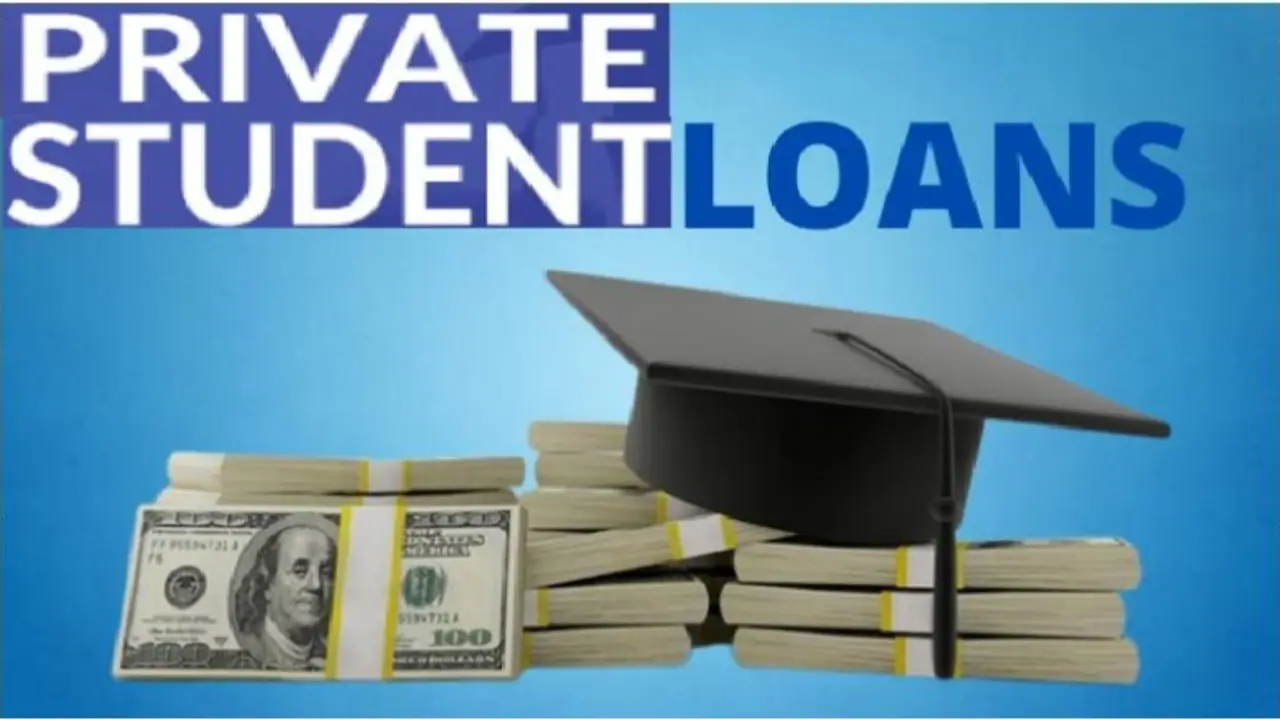Defaulting on your private student loans can have serious consequences, impacting your finances, credit score, and even legal standing. Here’s what you can expect: What happens if i Default on my Private Student loans
What happens if i Default on my Private Student loans
Immediate Impact:
- Late fees and penalties: Your lender will likely add late fees to your outstanding balance, increasing your overall debt.
- Negative credit reporting: The missed payments will be reported to credit bureaus, significantly damaging your credit score. This can hinder your ability to secure future loans, rent an apartment, or even get certain jobs.
- Collection agency involvement: After a period of missed payments (typically 90 days), your loan may be sent to a collection agency. These agencies use aggressive tactics to recover the debt, which can be stressful and overwhelming.

Potential Consequences:
- Legal action: The lender or collection agency may sue you in court to garnish your wages or place a lien on your property. This can result in having a portion of your paycheck automatically deducted towards your debt or losing your assets.
- Tax implications: In some cases, canceled or settled debts can be treated as taxable income. Consult with a tax advisor to understand how this might affect you.
Long-term Issues:
- Difficulty accessing credit: A poor credit score can make it challenging to qualify for future loans, including mortgages, car loans, and even credit cards. This can significantly limit your financial options.
- Employment prospects: Some employers may perform credit checks during the hiring process. A low credit score could potentially hurt your chances of getting certain jobs.
- Emotional stress: Dealing with debt collection and legal action can be incredibly stressful. This can impact your mental health and overall well-being.
Important to know:
- Unlike federal student loans, private loans don’t offer the same borrower protections or repayment options. You won’t have access to income-driven repayment plans or loan forgiveness programs. What happens if i Default on my Private Student loans
- While defaulting seems daunting, there are options available. The sooner you reach out to your lender or servicer, the better your chances of finding a solution, like a deferment or modified repayment plan.
Here are some resources that can help:
- Consumer Financial Protection Bureau: https://www.consumerfinance.gov/consumer-tools/student-loans/
- National Foundation for Credit Counseling: https://www.nfcc.org/
- American Fair Credit Council: https://aa4dr.org/
Remember, communication is key. If you’re facing difficulty making your student loan payments, don’t hesitate to reach out to your lender or seek professional help. There are resources available to assist you in navigating this challenging situation.

Financial Consequences:
- Credit Score Damage: This is the most immediate and lasting impact. Your credit score will plummet, making it difficult to obtain other loans, credit cards, mortgages, and even rent an apartment. The negative mark can stay on your credit report for seven years.
- Increased Debt: Interest and late fees will continue to accrue, significantly inflating your overall debt amount. Penalties and collection costs can also be added, further burdening your finances.
- Collection Agencies: Your lender will likely attempt to collect the debt themselves. If unsuccessful, they can sell your defaulted loan to a collection agency, who will employ aggressive tactics to recover the debt. This may involve incessant phone calls, letters, and even threats of legal action.
- Wage Garnishment: In some states, creditors can obtain a court order to garnish your wages, meaning your employer will be forced to withhold a portion of your paycheck and send it directly to the creditor.
- Lawsuit: The lender can sue you to recover the entire debt, including accrued interest and fees. If you lose the lawsuit, a judgment can be placed against you, giving the creditor legal authority to seize your assets or levy bank accounts. What happens if i Default on my Private Student loans
Non-Financial Consequences:
- Stress and Anxiety: The financial strain and constant pressure from creditors can cause immense stress and anxiety, affecting your mental and emotional well-being.
- Professional Impact: Depending on your profession, a defaulted loan may impact your professional license or job security.
- Social Stigma: In some cases, there may be a social stigma associated with debt default, affecting your personal relationships and self-esteem.
Before You Default:
It’s crucial to explore all options before letting your loan go into default. If you anticipate difficulty making payments, immediately contact your lender. They may offer options like:
- Deferment or forbearance: Temporary suspension or reduction of payments.
- Income-driven repayment plan: Adjustable monthly payments based on your income.
- Loan consolidation: Combining multiple loans into one with a lower interest rate.
Remember, communication is key. Openly discuss your financial situation with your lender and find a solution that works for both of you.
Seeking Help:
If you’re already facing default, don’t hesitate to seek professional help. Nonprofit credit counseling agencies can provide free or low-cost assistance in negotiating with your lender, exploring repayment options, and managing your debt.
